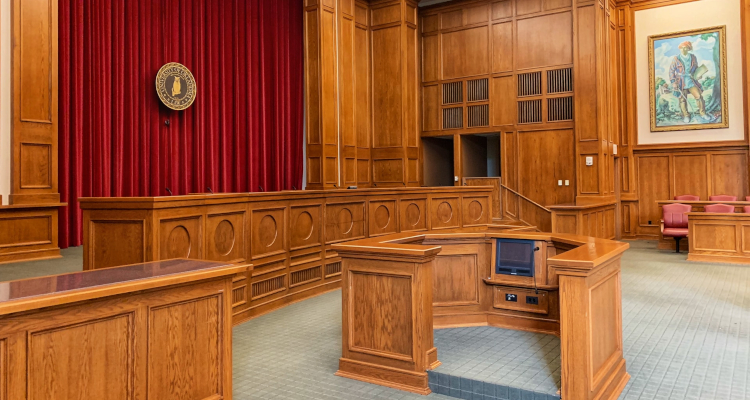Photo Credit: David Veksler
Concert-memorabilia company Wolfgang’s has secured multiple victories in its years-old infringement battle with several music publishers – including the reversal of an order to pay $2.4 million in attorneys’ fees and the rejection of calls for a retrial.
An appellate court just recently determined that Wolfgang’s needn’t pay the music publishers’ $2.4 million in legal bills – besides ruling on other appeals from the involved parties – in a 44-page-long decision. Regarding the case’s pertinent details, one William Sagan in 2002 bought “a trove of live concert recordings,” including shows from The Who and The Grateful Dead.
The owner of Bill Graham Archives – “Wolfgang’s was created in 2003, initially from the archives of famed concert promoter Bill Graham,” per its website – Sagan ultimately made the videos and/or recordings of the classic gigs available to fans to watch and download for a fee, including on a platform called Wolfgang’s Vaults.
But an array of music publishers in 2015 filed a $30 million complaint against Sagan, Norton LLC (which he owns and used to release the footage commercially), and the aforesaid Bill Graham Archives for allegedly failing to clear the rights to 197 of the underlying compositions contained in the recordings.
(The defendants settled a 2006 suit over the recordings themselves and, in 2009, inked “joint exploitation agreements” with each of the Big Three labels.)
A district court in 2017 issued a summary judgement in the plaintiffs’ favor, finding that Wolfgang’s had infringed upon the 197 works in question (167 of the instances were willful, per the decision) and that Sagan was personally liable for direct infringement.
On the heels of a nine-day trial and “less than an hour of deliberations,” a jury in March of 2020 awarded the publishers $189,500 (far beneath the sought $30 million, of course). Unsatisfied with the verdict, the plaintiffs then sought a new trial; a district court denied the corresponding motion in November of 2020 but awarded the publishers $2.4 million in attorneys’ fees.
Meanwhile, the defendants appealed the summary judgement rulings and the order to pay legal fees, whereas the publishers appealed a prior denial of a permanent injunction against the concert recordings and the previously noted rejection of a new trial.
Beginning with the actual infringement, the appellate court in this latest ruling concluded that “audiovisual recordings are not covered by Section 115 compulsory licenses” – meaning that Wolfgang’s did in fact infringe upon “each musical work [146 total] included in an audiovisual recording.”
The remaining 51 works were distributed solely as recordings, but the appellate court has vacated their infringement summary judgement, indicating that they “were not ‘fixed by another’ for the purposes of Section 115” of the Copyright Act.
Moreover, the three-judge panel opted to “remand to the district court for further factfinding on” the summary judgement pertaining to alleged infringement resulting from Wolfgang’s “failure to provide timely notice before distributing a phonorecord and before obtaining a voluntary HFA license.
“On remand, the district court should reevaluate its infringement findings for all audio-only recordings,” the judges wrote. “We leave it to the district court to decide whether a new jury trial is needed to resolve any factual disputes.”
However, the court sided with the publishers by rejecting Wolfgang’s argument that equitable estoppel and an implied license “preclude findings of infringement.
“Defendants argue that, since they made royalty payments,” the judges relayed, “the Publishers knew how the musical works were being used; and that acceptance of payment signified the consent required for a meeting of minds. But this reasoning ignores the mechanics of compulsory licensing.”
Finally, the appellate court reversed the direct infringement summary judgement against Sagan himself, as highlighted, upheld the rejection of the publishers’ call for a permanent injunction, and denied the appeal for a retrial “because the pandemic resulted in a rushed and ill-considered jury verdict.”
On the latter front, the judges communicated that the pandemic’s onset didn’t compromise the jurors’ commitment to reaching a fair verdict, nor did the publishers effectively “explain why it would have been easier for a rushed jury to award damages on the lower side of the scale, as opposed to in the middle or on the higher end.”
And in vacating the order for Wolfgang’s to shell out $2.4 million in legal fees, the judges penned: “The premise of that award is that (according to the parties and the district court) the substantive requirements of Section 115 incorporate the requirement for performer consent.
“The award therefore conflicts (at least in part) with our holding that defendants were not subject to Section 115’s substantive requirements. We therefore vacate the district court’s grant of attorneys’ fees and remand for reconsideration in light of this opinion.”

